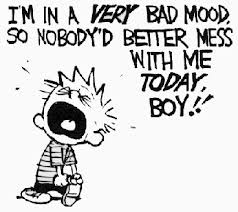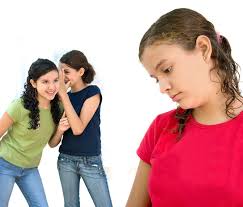We’re up to Part 4 of this (mostly) parenting Q&A series. I’ll occasionally throw in a teen question because, hey, it’s always enlightening to hear kids talk about what we do that drives them nuts. Today’s question concerns the confusion of a parent whose daughter is having an emotionally difficult time (again) with a best friend.
Today’s Question: Why are girls’ friendships so dramatic? My daughter had a best friend from 2-5th grade. When that girl moved away, my daughter was distraught. Now she’s in 7th, with a new best friend who may be losing interest. My daughter is getting very worried and upset. What can I do to help her put this in perspective?
Since 1997, the #1 issue girls write to me about is betrayal or rejection by a friend. Specifically, “My bff has a new bff! What do I do?” The email writer goes on to describe how she’s crying herself to sleep, has lost her appetite and doesn’t want to go to school or anywhere! Parents are often confounded by the intensity of their daughter’s emotions in these situations. Moms and Dads want to know what they can do to help.
Here’s the way I see it: A girl’s dramatic response to a friendship that’s cooling off resembles how one might react to a romantic break-up. Some girls even refer to losing a friend as getting “dumped.” Girls’ attachment to other girls is a precursor to their search for the The One, aka the Soul Mate, if you believe in that kind of stuff. Even if you don’t, it represents a search for someone who “knows me” and “understands me.” Someone who will laugh at what I laugh at and be equally moved by the things that move me. Someone I feel so close to that I barely need to explain myself to them.
When a girl’s bestie loses interest, and, for whatever reason, wants to spend time with another friend, it’s a major loss. Girls often describe it in classic stages of grief: Denial, Anger, Bargaining, Depression, until they can find their way to Acceptance. That’s where parents can help.
Tips for Helping Your Daughter Process the Loss of a Friend
1. Do not minimize your daughter’s angst. This “drama” she’s feeling and expressing is real. She needs your willingness to listen, without judgment. Dads, I know you want to help, and sometimes you may feel you have no idea where all these emotions are coming from. Moms, you’ve probably had some personal experience with friendship drama (past or present), so help your daughter’s father understand. Bottom line, the goal is not to commiserate with a sobbing girl, but to help her figure out a way through this.
2. Let your daughter talk about how she feels. Just listen with compassion and patience. When you do that, she will calm down because you are giving her an opportunity to express her feelings responsibly and appropriately.
3. Discourage her from getting on social media or her phone. Otherwise the whole thing will blow up like a conflagration, spreading like wild fire. Allies of both girls will feel pressure to take sides and rush onto the digital battlefield. That kind of drama is social garbage and no girl needs more of it in her life.
4. Work toward a reachable goal. After your daughter calms down, ask her “What is the best outcome you can imagine?” Likely she’ll say, “I want her to be my bff again!” Please gently remind her that she doesn’t have the power to control other people’s feelings or behavior, but she can help herself feel better about the situation. For example, instead of feeling sorry for herself, she could talk directly to her friend. This might result in a new awareness for your daughter in these areas:
a) what she needs in a friendship
b) where she draws the line in terms of how she lets people treat her
c) why it’s essential to have high standards for yourself and your friends
d) how important it is to be with someone who wants to be with you as much as you want to be with them
5. Encourage her to shop for a new best friend. Talk with your daughter about the qualities she deems important in a friend. Help her make a list (if she wants your help). Once she knows what she’s looking for she may decide that the “loss” she just experienced wasn’t so much of a loss at all. She may also be energized to go out and find a new best friend –one who provides more of what she needs.
I hope this helps you and your daughter. If you’ve got a question about parenting tweens and teens, email me. If your 8-12 year old daughter could use some help navigating friendships, check out my latest book – The Girls’ Q&A Book on Friendship: 50 Ways to Fix a Friendship Without the Drama.















